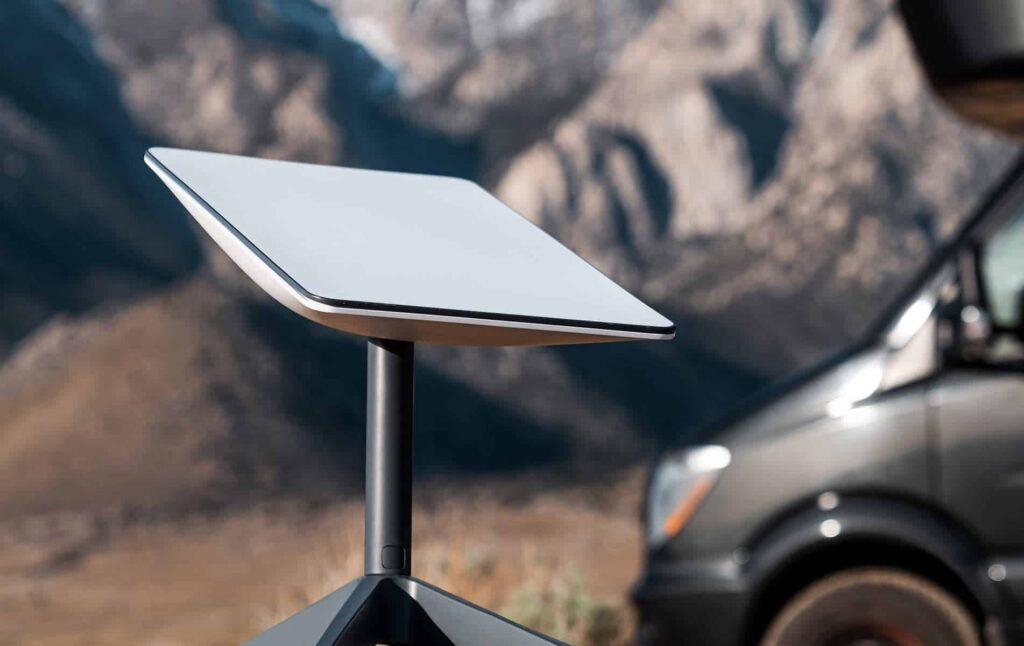
Starlink Roam is one of the most awaited satellite internet services to go live. With this plan, travelers can have access to the interrupted internet on the go.
But is it fast and reliable? To review it up, I subscribed to the Starlink Roam and used it during my road trips in the last 5 months. Getting consistent connectivity while on the move is not easy, but from my first trip to last, the connectivity, speeds, etc are same.
Features of Starlink Roam
It comes with a more significant rectangular terminal that lets it see 35% more sky, enhanced GPS capabilities allowing the dish to connect more satellites, and other features that let it establish a connection even if your vehicle is on the move.
👉 Related reading: Starlink Roam vs Residential: Which Is Better?
Besides, the terminal features better performance and resistance to both snow and weather, as well. Learn more about its features:
- Better Speeds & Performance: The flat high-performance dish of Starlink Roam boasts maximum download speeds of 350 Mbps compared to 50-200 Mbps of a regular RV dish.
- In-Motion use: With a 140° field of view, the dish can connect with more Starlink constellations.
- Better Ingress Protection: The high-performance Starlink Roam dish is IP56 rated to endure harsh weather conditions.
- Better Heating Management: It entails an in-built heater that melts the snow much faster to eliminate any obstructions in its line of sight with the satellites.
- Better Operating temperature: The internet speeds don’t get slow even if you are in an area with extremely high temperatures.
- Better Wind Protection: To ensure the antenna doesn’t rip off when in extremely high windy areas with a wind speed of almost 174 mph.
Want to know how this service package differs from the regular plans? Check out my dedicated Starlink Roam vs Residential comparison.
Starlink Roam Review: Does It Make Sense?
As mentioned earlier, I have used the Starlink Roam through my road trips and tested it across several performance standards over 2 months. So read through it and make a decision whether to decide if spending up to $200 a month is worth it or not.
WiFi Speeds
The flat high-performance Starlink Roam promises maximum download speeds of 350 Mbps, compared to 200 Mbps in the standard one. While the upload speeds are capped at 15-40 Mbps. That’s the highest of all the plans Starlink has to offer.
Also, if you compare Starlink Roam with the Residential plan, the Roam comes with no data cap, so you won’t have to worry about getting cut off from the online world anytime. But how well it fares in real life? Let’s find out.
In multiple tests at different locations, the RV plan could deliver around 140 Mbps in download and 30-35 Mbps in upload. On top of these good speeds, it's quite consistent and doesn't drop easily.
Talking about latency, the latter situation had much better results compared to the former, with respective values of 51ms and 34ms. So, you can expect a much better gaming performance on the go than when you are around a residential space.
Performance & Power Consumption
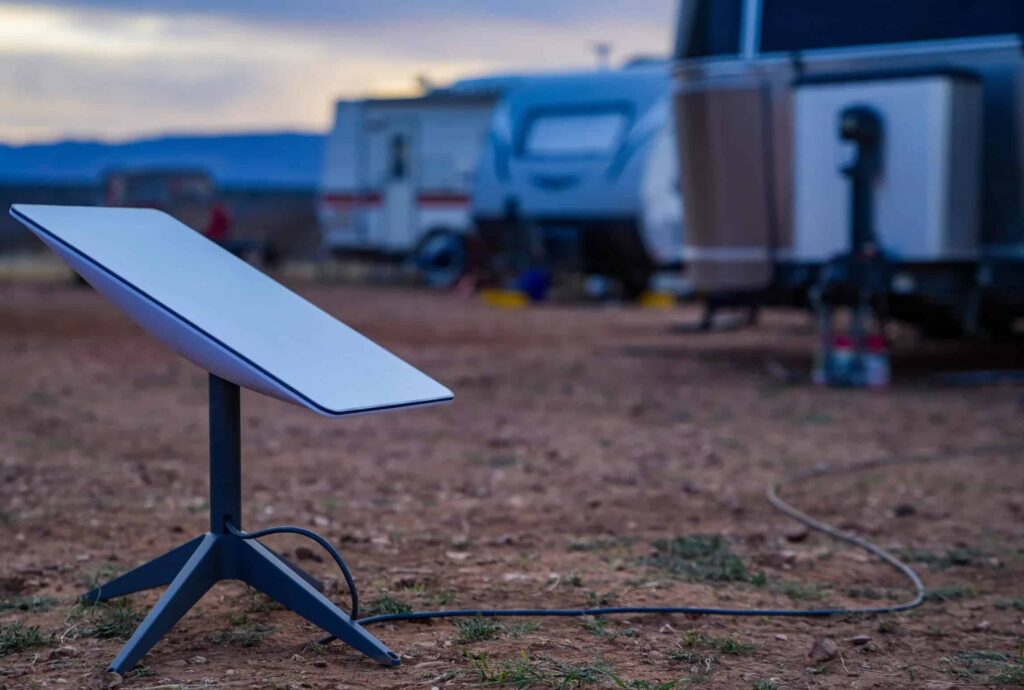
Whether in motion, parked near a residential space, or in-between thousand of campers, Starlink Roam never failed to disappoint, as my devices were always online.
I could connect to up to 15 of my available devices including a smart TV, laptops, smartphones, and work computers, and no major bottlenecks were there.
The gaming performance, especially on the go, was excellent with a ping value of around 34ms. I could play PUBG with my friends en route to the Nevada I-15 highway.
However, performance took a hit when I parked the vehicle in a congested area or in proximity to a residential space.
I also experienced speed drops when moving around obvious obstructions like trees or tall buildings. However, me and my friends could still browse the internet.
I also got in the middle of heavy rain followed by thunderstorms when the RV was on the move in Arizona. The signals went blank and I couldn’t even browse the web for the first few minutes in the storm.
👉 Related reading: Starlink Mesh Router Review: Is It Worth It?
But as the storm turned into drizzle, things returned to normal and I could again work on my internet-bound tasks.
As for the power consumption, we noticed that it consumes approximately 1 kWh of electricity in 24 hours.
Installation & Setup
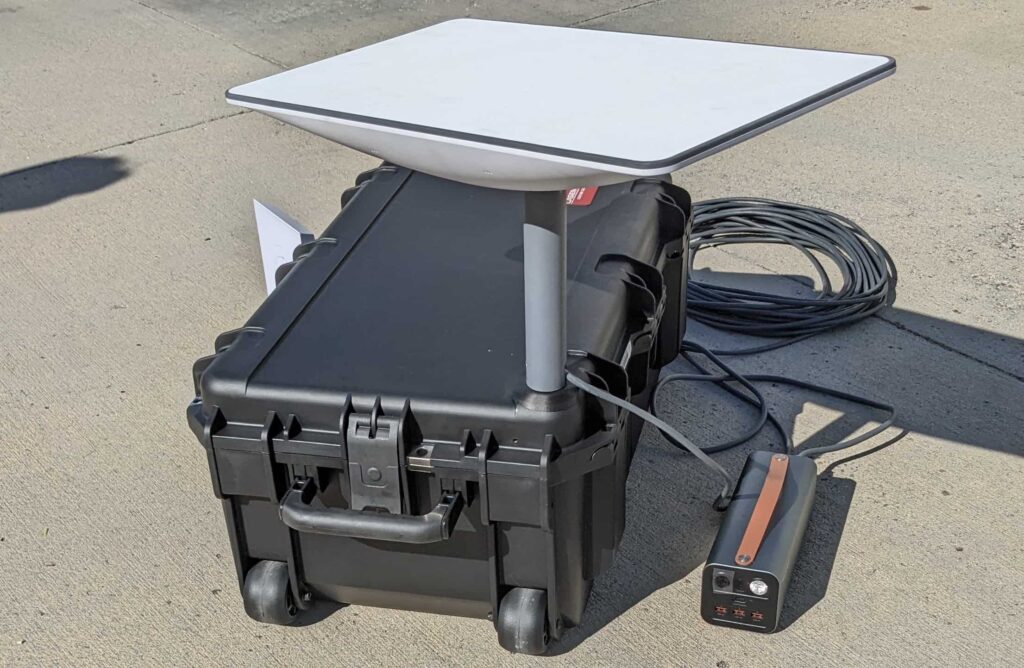
If you are well-versed in installing Starlink Roam at your home, things aren’t any different with the Roam. The kit contains a 75 feet long wire, a mount, a mast, and an antenna.
Start with inserting the wire into the mast and the latter into the mount. Proceed with inserting the other end of the wire into the router, and power it on.
Install the Starlink app and wait for it to detect the router. Once it does, log in using the default user credentials, followed by checking obstructions.
Now that you have determined an optimal installation location stick the dish properly on the roof, and start experiencing the lag-free internet.
For more detailed instructions, refer to my dedicated guide on Starlink internet setup.
Starlink Roam Cost
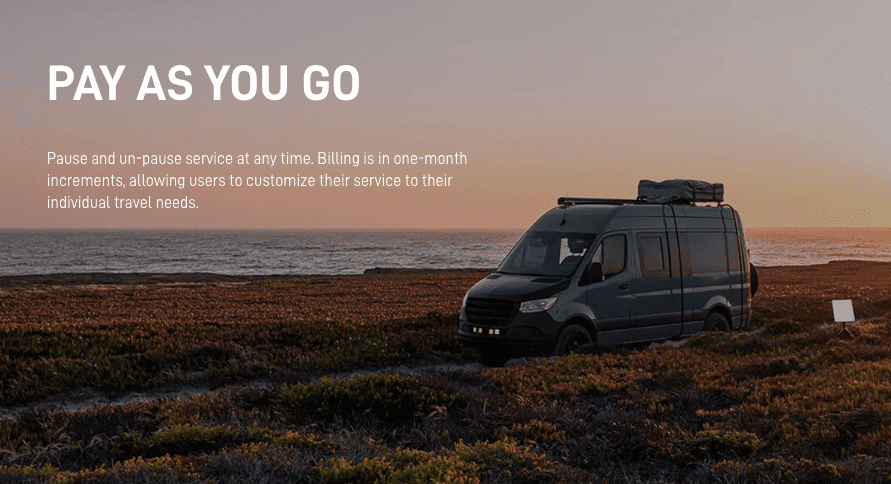
Here’s the cost distribution for both Starlink Roam standard and flat high-performance dish:
| Starlink Roam rectangular dish | Starlink Roam flat high-performance dish | |
|---|---|---|
| Hardware cost | $599 | $2,500 |
| Data plan cost | $135 | $135.00 |
| Portability fee | ✖ | ✖ |
Starlink Roam Availability
Refer to the coverage map below and check if your area is covered:
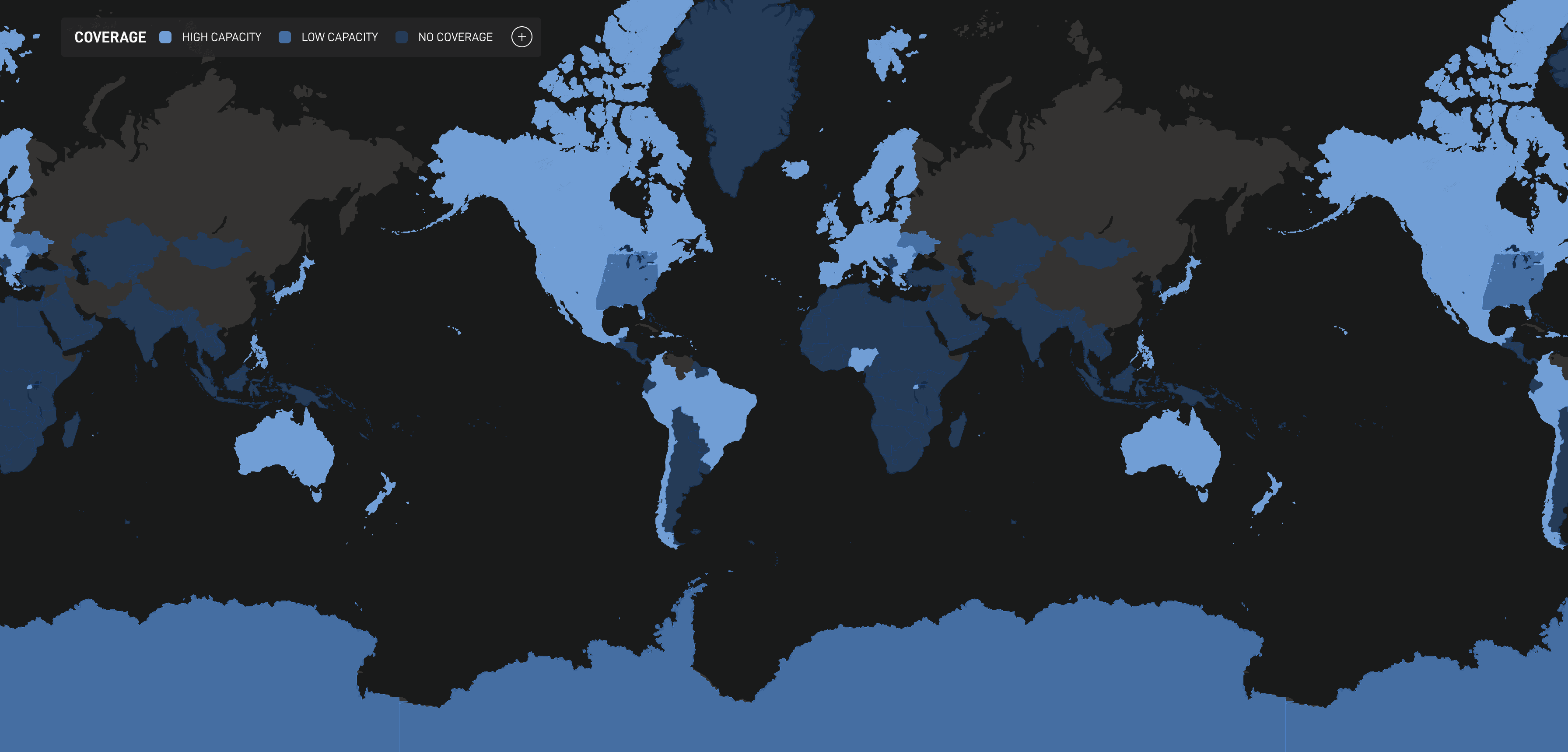
Furthermore, you can also visit Starlink's official website and enter your shipping address to know if the service is available.
Starlink for RV: User Reviews
Here is what users have to say about their experience with Starlink Roam internet service:




Who is it Suitable For?
It’s clear from the name & features it delivers, Starlink Roam is for nomads or people who love traveling most part of the year and don’t wish to miss any updates or things happening outside. Courtesy of its high-performance dish, you can stay connected to the internet with minimum disruptions even when your vehicle is moving.
If you love traveling but work online at the same time, or want to stay connected with your friends and families on video calls, play games, or watch movies with family on the go, this should be your ideal companion.
Frequently Asked Questions
Starlink Roam betters regular Starlink in many ways including its ability to use in-motion and pause the internet anytime. But the standard Starlink Roam comes levels with residential Starlink in terms of speed, in which the high-performance dish stays much ahead.
Yes, you can use Starlink Roam anywhere, as long as it is available on the same continent where you receive the service.
The standard Starlink Roam charges $599 for the kit and a $135 subscription fee every month. On the other hand, the subscription fee stays the same for its high-performance dish, the equipment kit costs $2500.
The standard Starlink Roam claims a maximum download speed of 200 Mbps, while its 350 Mbps for the flat high-performance one.





